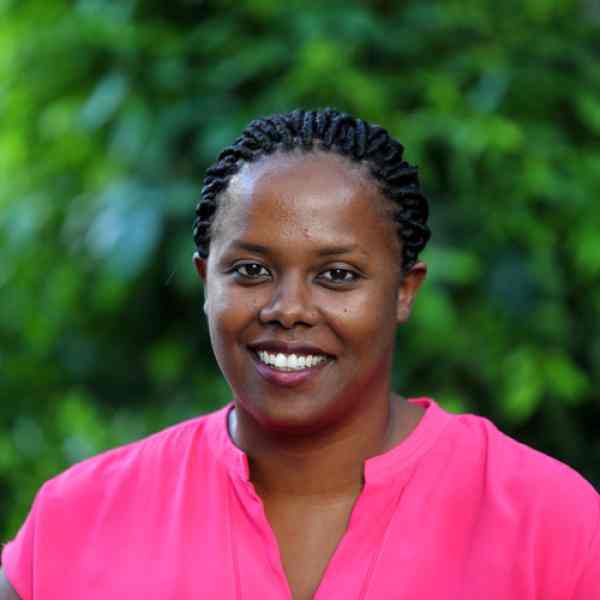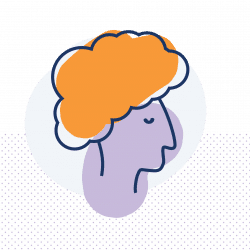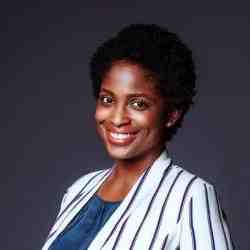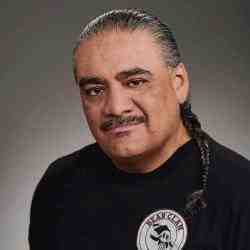Introduction
Isabelle Kamariza is pioneering a unique approach to addressing nutrition security in Rwanda, positioning access to adequate and appropriate nutrition as a fundamental human right. Through Solid’Africa, she's bridging a critical gap in nutrition access in the public healthcare system by providing free, medically tailored meals to low-income hospitalized patients. To ensure sustainability, Solid’Africa operates an innovative farm-to-fork model, ensuring control over the entire value chain, guaranteeing quality and affordability. Beyond feeding patients, Isabelle is leveraging strategic collaborations with the government to shift nationwide policy on nutrition not just in healthcare but also in education and other relevant sectors. Isabelle’s vision goes beyond feeding patients; it's about making nutritious, affordable food accessible to all, across multiple sectors, fundamentally changing how nutrition insecurity is addressed in Rwanda.
The New Idea
In Rwandan public hospitals, patients are burdened with procuring their meals, facing the choice of expensive purchases from private vendors or relying on caregivers for their nutritional needs. This system places a particularly heavy strain on low-income patients, who may struggle to afford or access adequate nutrition during their hospital stay. This has led to significant nutritional deficiencies among vulnerable in-patients that can hinder recovery and extend hospital stays. Isabelle’s work is ensuring that all in-patients have access to affordable, medically tailored meals, which is pivotal for their ability to recover and for reducing the overall cost of care. Isabelle's ambition extends beyond hospital walls; she envisions transforming the Rwandan nutritional landscape by replicating her model in educational institutions, correctional facilities and other public institutions in order to reach more vulnerable communities at high risk of nutrition insecurity across the country.
Solid’Africa's Farm to Fork model epitomizes efficiency by leveraging a vertically integrated system to keep costs down while upholding quality and consistency vital for patient recovery. By operating their own organic farms, Solid’Africa guarantees 84% of fresh nutritious produce needed to prepare medically tailored patient meals. Solid’Africa also operates one of Rwanda’s largest industrial kitchens capable of producing 30,000 meals daily with only a small number of cooks. Financial sustainability is further strengthened through a cross subsidization model in which the sale of nutritious lunches to private schools and large-scale employers covers part of the cost of delivering free meals to low-income patients. Solid’Africa’s commercial activities, wholly owned by the non-profit, are diversified to include a novel offering in kitchen management services for large private and public institutions and Rwanda’s first Institute of Culinary Arts and Nutrition which seeks to place nutrition at the center of mainstream hospitality industry by equipping practitioners including chefs, cooks and kitchen managers.
The Problem
With 38.2% of the population living below the poverty line, close to one fifth of Rwandans are food insecure. 70% of the population depends on subsistence agriculture for its livelihood, focusing on a select number of staple food crops. This has led to limited dietary diversity in nutrition and in turn high levels of malnutrition and stunting in children with 32.4% of children under 5 suffering from chronic malnutrition. These dietary challenges are not confined to homes but extend to hospitals, where food provision is a critical yet unaddressed need.
Despite advancements in healthcare accessibility in Rwanda over the last two decades, with over 93% of the population now covered by Universal Health Coverage, a critical gap remains in hospital nutrition. Hospitalized patients face the burden of procuring their meals, often at unaffordable prices that consume more than 75% of the daily income of those in the lowest income bracket. The alternative for low-income in-patients is to rely on caregivers for food that must be brought from sources outside the hospital, an unsafe and impractical solution given the risk of meal exposure, long distances to healthcare facilities and the high cost of travel. The challenge is compounded for low-income in-patients with specific dietary restrictions due to medical conditions like diabetes or hypertension, who often face a severe lack of affordable and suitable meal options tailored to their health needs, exacerbating the problem of in-hospital malnutrition. This gap in the healthcare system has serious implications. Without access to affordable, nutritious meals, recovery is hindered, leading to prolonged hospital stays and increased strain on the already stretched healthcare system.
Like most developing nations, the government, constrained by budget limitations and dependence on international aid, prioritizes critical medical needs over food provision in its health policy. Integrating medically tailored meals into primary healthcare is a challenge as it would significantly increase the cost of providing universal health cover, subsequently increasing annual individual contributions beyond the reach of most of the population. This has led to the reliance on third party private entities for hospital meal provision, which often fails to meet the affordability of dietary needs of vulnerable patients. The result is a cycle of nutrition insecurity in hospitals, hindering patient recovery, prolonging hospital stays, and placing additional strain on Rwanda’s healthcare system.
The Strategy
When Isabelle Kamariza founded Solid’Africa in 2010, she started with a simple yet powerful vision: to ensure that no patient in Rwandan public hospitals suffers from a lack of nutrition. Her journey began in her parents' kitchen, cooking for a handful of patients. This modest beginning, fueled by volunteer efforts and community support, laid the foundation for what would become a transformative movement in Rwanda's healthcare system.
Recognizing the need for systemic change, Isabelle strategically focused on demonstrating the efficacy of her work and cultivating key partnerships with government agencies from the outset. This strategic alliance, carefully nurtured over a decade, has been instrumental in scaling Solid’Africa’s impact. Initially with the support of a strong volunteer network, Solid’Africa grew from feeding a handful of patients to catering for over 400 daily by 2014. A major turning point came in 2019 with the establishment of the Mike Stenbock Gemura Kitchen. The semi-automated state-of-the-art facility exemplifies efficiency and innovation, capable of producing 30,000 meals a day at full capacity. Crucial government support, including the provision of land for the kitchen and Solid’Africa’s 9-hectare organic farm along with tax exemptions equipment and machinery has been a cornerstone of their success. This strategic collaboration with the government has set Solid’Africa on a path to consistent growth and impact.
The COVID-19 pandemic, which reached Rwanda in March 2020, presented an unforeseen challenge but also an opportunity for Solid’Africa to demonstrate its capacity and resilience. The government, recognizing the organization's efficiency and impact, tasked Solid’Africa to extend its services from one to five public hospitals serving as COVID-19 centers in Kigali at the time. Taking on this challenge ushered in a new phase of growth for Solid’Africa with the number of patients under their care growing to more than 1,500 today. To feed these patients three times a day, Solid’Africa produces an average of 4,500 to 5,000 meals daily. This rapid growth in spite of the challenging times during and after the pandemic is a testament to the organization's robust infrastructure and sustainable operational model.
Today, Solid’Africa is the only organization in Rwanda feeding low-income patients on a large scale by providing medically tailored meals for free in public hospitals in a consistent and systematized way. Critical to this success has been Isabelle’s unwavering focus on financial sustainability which she achieved through two key strategies. First, is Solid’Africa’s farm to fork approach, that has allowed the organization to control the entire value chain from farm production to the preparation and delivery of medically tailored meals to patients thereby maximizing quality and minimizing the cost of meal production. Second, was the move to establish a wholly owned Community Benefit Company (CBC) through which Solid’Africa is able to generate income from the sale of mission-aligned products and services to subsidize the cost of feeding hospital patients for free.
As Solid’Africa’s impact has grown over the years, so too has the Isabelle’s vision. She now sees nutrition security as a fundamental human right and is committed to ensuring equitable access to appropriate and adequate nutrition for everyone. Beyond feeding patients; she is committed to changing the narrative around nutrition in healthcare, education, and beyond. To this end, she is establishing the Institute of Culinary Arts and Nutrition in Rwanda in a bid to transform the hospitality industry by merging the disciplines of nutrition and culinary arts thereby ensuring that meals prepared in hotels and restaurants are prepared with a nutrition first approach. To sustainably scale the impact of Solid’Africa, Isabelle is in advanced stages of pursuing a Public-Private Partnership to extend the patient feeding program to public hospitals across Rwanda. In addition, and in response to calls from other government agencies including the Ministry of Education, Isabelle is exploring ways to integrate Solid’Africa’s model into feeding programs for public schools and Early Childhood Development Centers. Isabelle's journey reflects a deep understanding of the interconnectedness of health, nutrition, and societal well-being and her strategic focus on leveraging collaboration with the government to achieve sustainable and long-lasting systemic change.
The Person
Born into a vibrant family in Burundi, Isabelle’s childhood was filled with the laughter and warmth of her siblings. Even as a young girl, Isabelle's imagination was captured by the culinary arts, often finding joy in crafting makeshift pans and ingredients from the simple elements of her surroundings, a foreshadowing of her future endeavors.
Her formative years were marked by events that would forever reshape her perspective and profoundly shift her life. In the aftermath of the tragic 1994 genocide against the Tutsi, Isabelle's family returned to Rwanda. Here, the idyllic tales of a land flowing with milk and honey from her childhood starkly contrasted the reality of a nation in need of healing and rebuilding. It was in these years, amidst the backdrop of a country piecing itself back together, that Isabelle's determination to be part of Rwanda’s reconstruction was shaped.
Her empathy and commitment to rebuilding her homeland were further deepened during her undergraduate years in Belgium. The cold metro stations of Brussels, where she saw hungry and homeless people seeking refuge, became the unlikely catalyst for her mission. In a spontaneous act of kindness, she mobilized her friends and spearheaded a movement to make and distribute 200 sandwiches to those in need. Inspired by the impact of this act, Isabelle continued to grow her reach, eventually feeding hundreds more. This act of generosity was not just about providing food; it was an expression of deep-rooted beliefs in dignity and compassion, principles that today form the bedrock of Solid’Africa.
Returning to Rwanda, Isabelle's resolve to make a tangible difference took a more defined form. Encouraged by a family friend, she visited Kigali's largest public hospital. There, the reality of food insecurity among patients who didn’t know where their next meal would come from struck her deeply. Moved by their plight, she began by preparing food for five patients in her home kitchen, gradually raising awareness and mobilizing support from her friends to expand her reach. Her initiative quickly gained momentum, as more people joined in, all driven by the belief that access to nutritious food is a fundamental human right.
Isabelle's journey with Solid’Africa is not just a story of feeding the hungry. It is a testament to the power of small, intentional actions that can challenge the status quo and transform society. Her approach embodies the essence of grassroots change, where empathy, resilience, and a deep connection to one's roots converge to create lasting impact. In Isabelle's words, "Change does not always have to be grandiose; it's the small steps, consistently taken, that weave the fabric of societal transformation."



